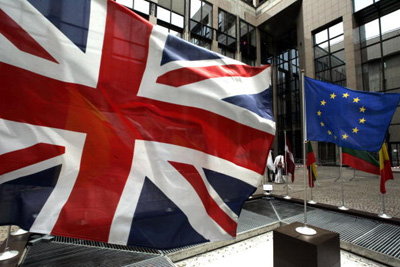26th November 2012 Paris, France
The UK and the EU budget

I want to talk to you about two things this week. First of all, the European Union budget. You may have seen in the press last week, in the run up to the European Council at the end of the week, a lot of stories suggesting that Britain was isolated. I saw one headline in a major French newspaper saying that Europe was taken hostage by the UK. Well, it didn’t quite work out like that.
Written version (continued)
We, like other members of the EU, went to Brussels to defend our national position. For us, the Government are making major cuts in spending back home, we are cutting 20% of the police budget, we are saving £18bn (more than 20 billion Euros) out of our social security budget. In those circumstances, it can’t be right for the only part of the Government’s spending that is rising should go to the European Union. That is why our Prime Minister David Cameron went to Brussels looking for either a reduction in spending in the EU, or at a minimum a real-term freeze in that spending.
And it turns out we were not isolated: there were a number of other countries around Europe, who also were not satisfied with the budget that was being offered by the Commission. Every country has national interest to defend. France defends the Common Agriculture Policy, and we absolutely understand why. But Britain is determined that we will secure a real-term freeze in the European Union budget, there is support for that and Heads of governments will have to come back on the issue in the early part of next year.
Britain was a constructive force in this European Council and we believe that it will be possible to come out with an agreement at the end of the process.
I just also wanted to draw your attention to something which is on our website, which is a discussion I had with the French députée Nicole Ameline*, in preparation for the International Day against all forms of discriminations against women yesterday 25th of November. We are in the middle of a process that also runs up to further international days to put in the spotlight the very real problem of violence used against women. William Hague, our Foreign Secretary, has an initiative against violence used as a weapon of war against women that he will take to the G8 meeting next year.
This is an issue that Britain takes very seriously and I was very glad to have the chance to talk to Nicole Ameline about it.
* Nicole Ameline, former French Minister for Parity and Equality in the Workplace, was first elected as a member of the UN Committee on the Elimination of Discrimination against Women (CEDAW) in 2008 and has served as Vice-Chairperson since 2011.